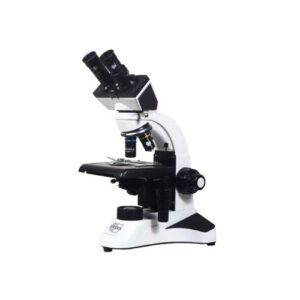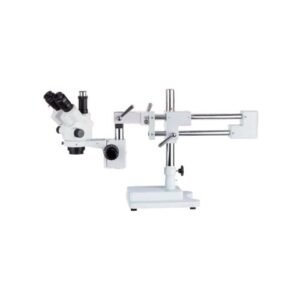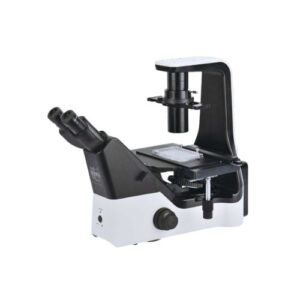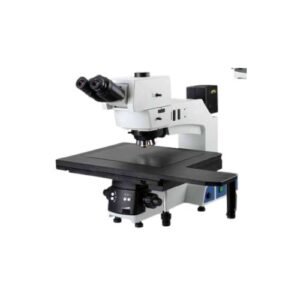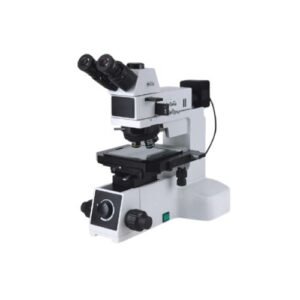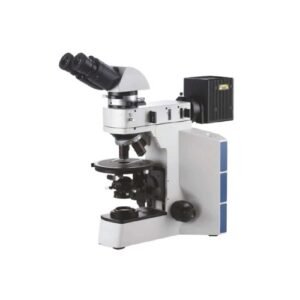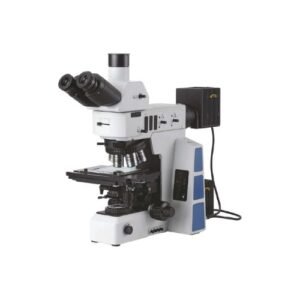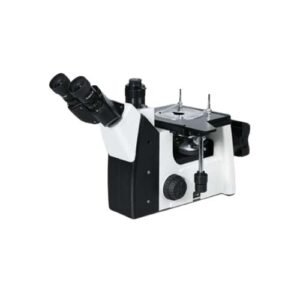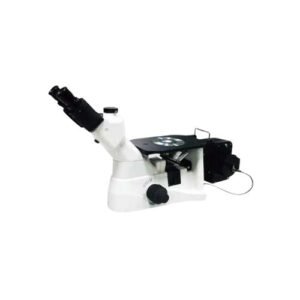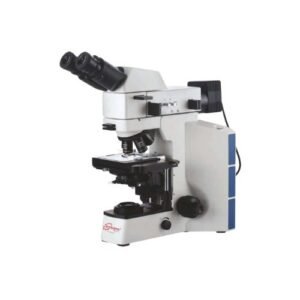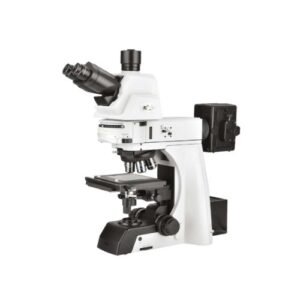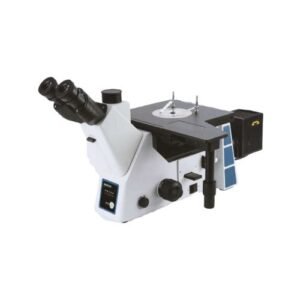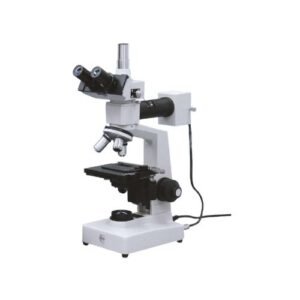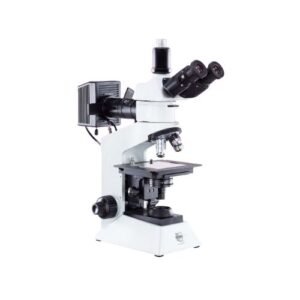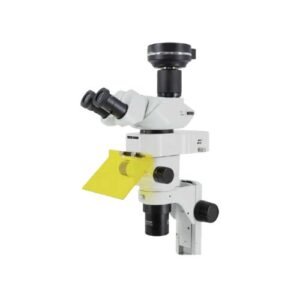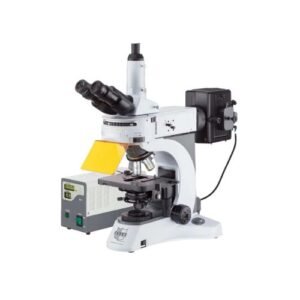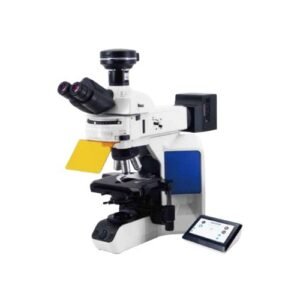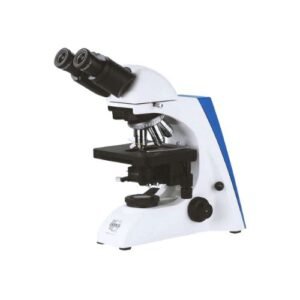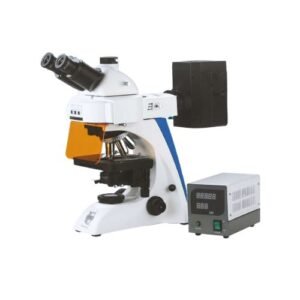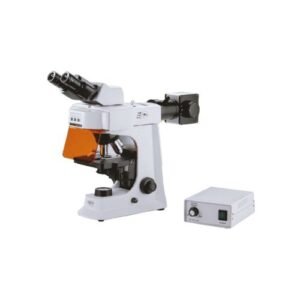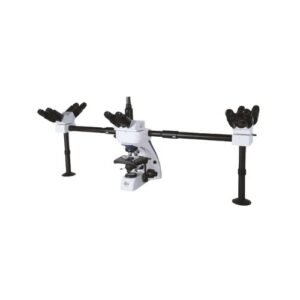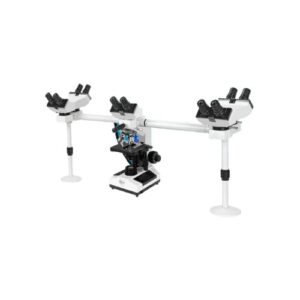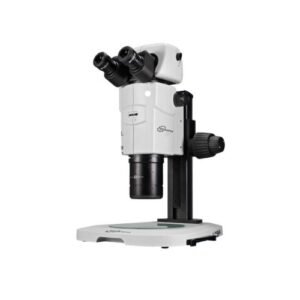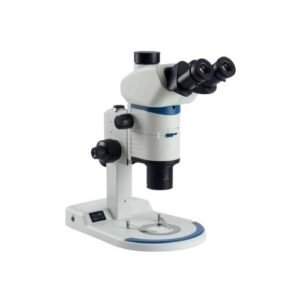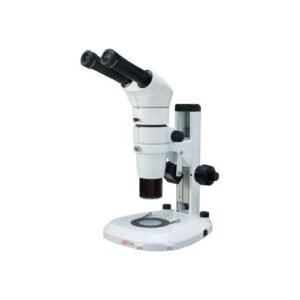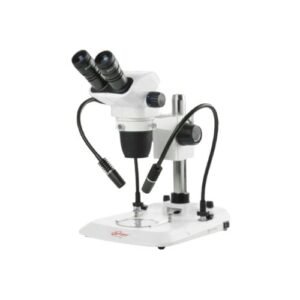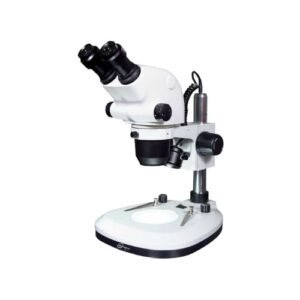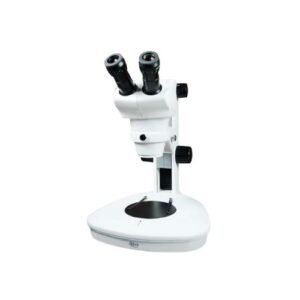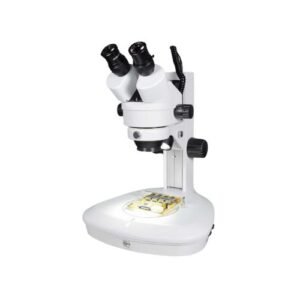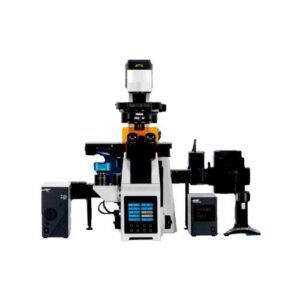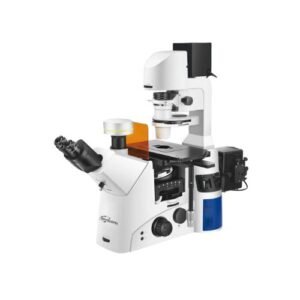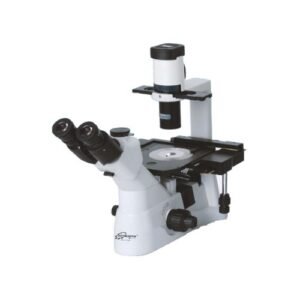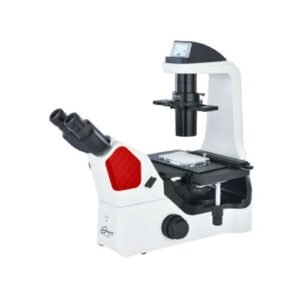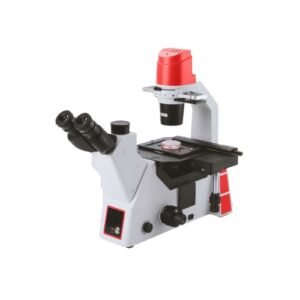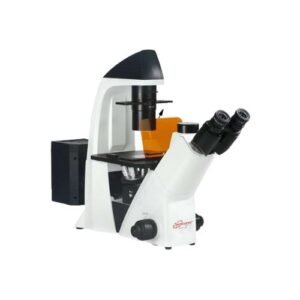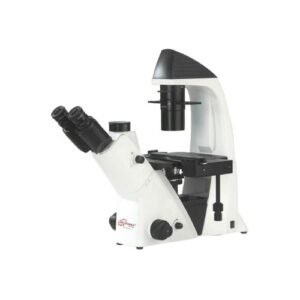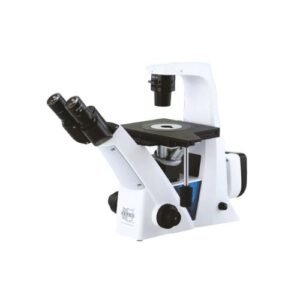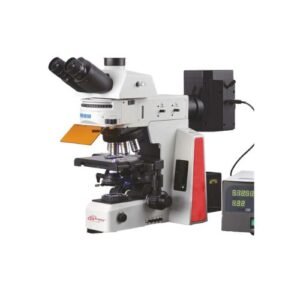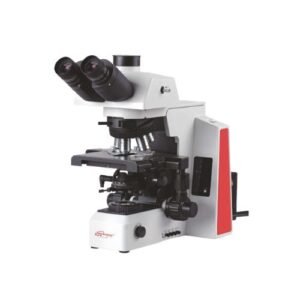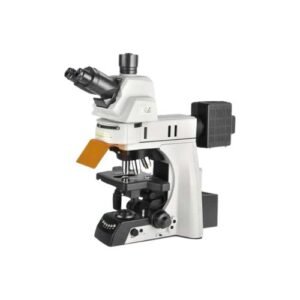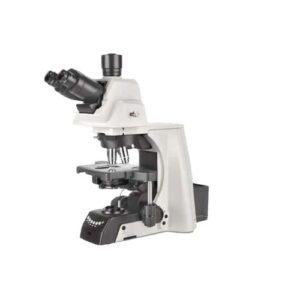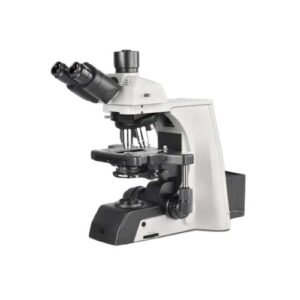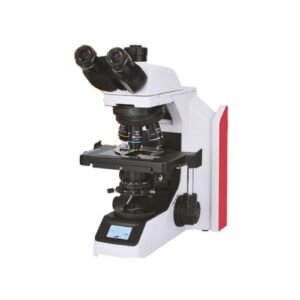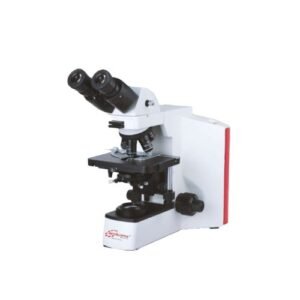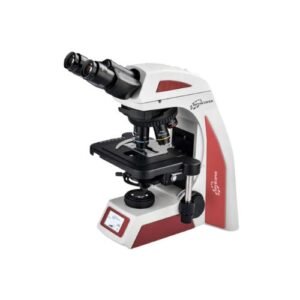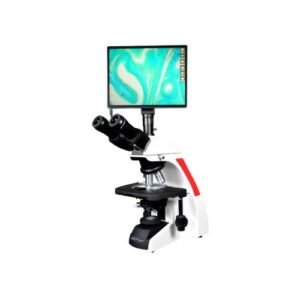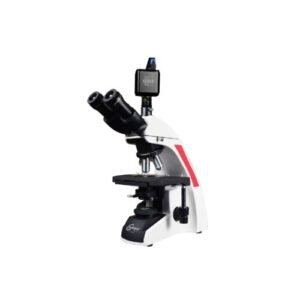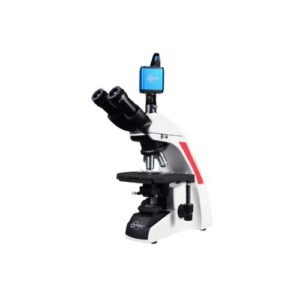Shop
Showing 1–48 of 491 resultsSorted by latest
-
Microscopes
Co-Axial Microscope – CXL5
The modern microscopes of the CXL series are especially developed for educational purposes with primary focus on ergonomics and
excellent price/quality ratio. These microscopes are supplied with secured eyepieces and adjustable rack stop to prevent damage to sample and objectives.- Monocular, binocular and trinocular models with WF 10x/18 mm eyepiece(s).
- Revolving nosepiece with four achromatic objectives.
- Coaxial coarse and fine adjustments with rack stop.
- Height adjustable Abbe condenser withiris diaphragm.
- LED illumination.
- Models with X-Y mechanical stage have rechargeable battery.
- Ergonomic stand.
SKU: CXL-5 -
Microscopes
Boom Stand
- Stand Type: Universal stand with Sturdy base and dual swivel feature.
- Swivel Range: 180′ swivel mechanism for bonder arm independent of horizontal arm. 360′ swivel mechanism for horizontal arm around vertical column.
- Total Length of Horizontal Arm & Bonder Arm: 600mm.
- Horizontal Arm Adjustment Range: 280mm 500mm 300mm 250-260 mm X?
- Vertical Column Height: 50-260 mm X 45-50 mm.
- Base Weight: 17 Kg.
SKU: DM-5i -
Microscopes
Semiconductor FPD Inspection Microscope
Equipped with varisized wafer holders (including 4/6/8/12 inches), MX8R / MX12R is professionally applied for wafer and flat panel display detection, maximally supports for dia. 300mm of wafer and 17 inches of FPD. More comfortable, flexible and quicker operation is available with upgraded ergonomics design.
Realizes an automatic future:
- With electronic stage and nosepiece, X/Y/Z axis can be auto or manual positioned, while the aperture auto matched.
- With professional software for image capture and mosaic, overall image analysis is achievable.
SKU: MX8R -
Microscopes
Polarizing Microscope
The innovation of technology creates vivid visual experience. New designed CX40P improves the stress free system and reflected illumination system, more vivid image is available as the polarizing performance ameliorates. Green manufacture in full operation based on HSF environmental policy. With various ergonomics designs, easy and comfortable operation is available.
- Intermediate device for professional conoscopic observation, with internal Bertrand lens and analyzer, λ λ/4 & quartz wedge attachable.
- Centerable Bertrand with rotating switch, focusirig recyclable, make it easier to observe interference: image.
- Pluggable analyzer, 360° rotatable, 2° Increment 6′ precision.
- Reflected illuminator with polarizer and beam splitter, field and aperture diaphragms adjustable.
- Pluggable polarizer is removable for ordinary observation and easy to be replaced.
- Removable beam splitter is designed for improving the image quality by all the transmitted light concentrated in binocular.
SKU: CX-40P -
Microscopes
Upright Fluorescence Microscope
- Upright fluorescence microscope with transmitted and reflected lighting, and a six-filter turret.
- The microscope is built around an infinity-corrected optical system with a wide magnification range, and Koehler diascopic and episcopic illumination.
- The powerful 100W, wide-spectrum, mercury-vapor episcopic illuminator uses a rotary filter-selector which can house up to six fluorescence filter-blocks; already included are ultraviolet, violet, blue, and green excitation blocks.
- The sub-stage illuminator uses a 30W halogen lamp with field-lens and diaphragm for even, high-contrast lighting.
SKU: URM04 -
Microscopes
Research Level Fluorescence Microscope
- Eyepiece: Wide field 10X/25, diopter is adjustable.
- Observation Tube: 300 inclined hinged trinocular head, high eyepoint, pupil distance 50-75mm.
- Infinity Plan Semi-Apochromatic: M-UPLFLN 4X/0.13; WD :17.15mm, M-UPLFLN 10X/0.3; WD :7.68mm.
- Fluorescence Objectives: M-UPLFLN 40X/0.75 :WD :0.78mm, M-UPLFLN 100X/1.30 Oil; WD :0.15mm Broad spectrum high power LED light source (mercury lamp is optional), Power box for LED light source MGI 00, Sextuple fluorescence module FL-43, Excitation wavelength.
- EPI-Fluorescence Illuminator: EX :375/30nm; DM :415nm; EM :460/50nm, EX :475/30nm; DM :505nm; EM :530/40nm, EX :560/40nm; DM :600nm; EM :610nmLP.
- Nosepiece: Quintuple nosepiece.
- Stage: Ceramic-coated coaxial stage with left or right hand low drive control Movement range 80mmx50mm, 1mm/unit, accuracy 0. Imm Warm white LED brightness continous adjustable.
- Transmitted Lighting: Abbe condenser, N.A. 1.1.
SKU: FM-40 -
Microscopes
Fluorescence Microscope – MX-800
- Wide field eyepiece, view field up to Φ22mm, more comfortable for observation.
- Trinocular observing tube with dual transform.
- Light distribution (both): 100 : 0 (100% for eyepiece).
- 80 : 20 (80% for trinocular head and 20% for eyepiece).
- Integrated stage is safer than traditional stage.
SKU: MX-800 -
Microscopes
Fluorescence Microscope – MX-700FL
- Excellent OPTICS infinity optical system, outstanding resolution and definition.
- Original integrated stand for excellent stability.
- Unique aspheric illumination system, provide bright and comfortable lighting.
- Various colorful matching looking can provide lively environment and happy mood.
- Various accessories for upgrading.
- Back handle and observing hole convenient for carry and operation.
- Alternative color for main body.
SKU: MX-700FL -
Microscopes
Fluorescence Microscope – MX-400FL
- Excellent OPTICS infinity optical system, outstanding resolution and definition.
- Original integrated stand for excellent stability.
- Unique aspheric illumination system, provide bright and comfortable lighting.
- Various colorful matching looking can provide lively environment and happy mood.
- Various accessories for upgrading.
- Back handle and observing hole convenient for carry and operation.
- Alternative color for main body.
SKU: MX-400FL -
Microscopes
Penta-Head Multiviewing Microscope – XSZ-510
- XSZ-510 multi-viewing demonstration biological microscope is designed for several people to observe one specimen together at the same time.
- It has infinity imaging system, high light intensity illumination system, sharp & clear image and consistent image in observation.
- Particularly it is suitable for discussion application in Clinic, Research and education.
- It supplies more bigger space for observers, that brings more comfortable in working. In order to make convenient intercourse between the observers, the microscope is equipped with LED cursor to indicate image in the viewing field, the cursor is arrow type with light intensity adjustable button.
- The cursor can be moved freely, any position of the image can be indicated.
SKU: XSZ-510 -
Microscopes
Penta-Head Multiviewing Microscope – Classic
- Incorporate in innovative optical and structural design ideas, facilitating group discussion and consultation by five observers during important meeting, confernces and seminars Penta Head is equipped with five observation head, included at for comfortable viewing, include the central Trinocoular Head to accept optical photo micrography and video Equipments.
- The built is LED Green Light Pointer, with adjustable brightness can be moved in the filed of view during group discussion supplied as above with following infinity corrected plan options.
SKU: PHC02 -
Microscopes
Stereo Zoom Trinocular Microscope
TRINOCULAR VIEWING HEAD AND DIGITAL IMAGING:
The viewing head is comfortable to use The viewing head ane the visibility is adjustable. So you can observe in the most natural and comfortable position. This can minimize the visual fatigue caused by long time observation.- Digital viewing Standard trinocular viewing head can be connected with camera to realize video real-time observation and Images taken.
- And equipped with special image analysis software to meet your various imaging and analysis in scientific research.
SKU: ZX-135 -
Microscopes
Parallel Light Zoom Stereo Microscope
Stereo microscope is importantly applied in industry detection and life science. Based on Galileo optical system and man-machine engineering, ZX-63 presents a real and perfect micro-image with easy operation, meets the research demands of biomedicine, microelectronics and semiconductor.
SKU: ZX-63 -
Microscopes
Stereo Zoom Optimum Microscope
- Smooth focus control and a fluid 8x Greenough zoom system guarantee stress free operation with minimal ware and tare to gears, Excellent Image Quality & Optical Performance with infinity Parallel Optical System.
- Comfortable Operation with Ergonomic Design Principle with LED light for both incident and transmitted illumination, Providing even illustration and life expectancy can reach 6000 hours.
- A Wide Range of Accessories to be Equipped with the Microscope for Multi-purpose.
- It is An Outstanding Assistant in Industrial, Medical and Scientific Research Areas.
SKU: SZO02 -
Microscopes
Stereo Zoom Prime Pro Microscopes
The PRIME PRO stereo microscopes allow you to examine your specimen with high precision, generating three-dimensional images, suitable for your highest demanding applications. These top level zoom microscopes are perfect for analyzing all kinds of material surfaces or observing and preparing biological samples. These stereo microscopes can be supplied with a large choice of stands, with or without LED illuminatiori. Ideal for a wide variety of applications. With additional lenses and objectives magnifications from 3.3 up to 220x can be achieved.
- Binocular and trinocular heads with HWF 10x/22 mm or HWF 10x/23 mm eyepieces.
- Zoom ratio 1 : 9, 6.1x to 57x.
- Ergonomic stands.
- Double 3 W LED illuminations.
- Configurations up to 220x magnification.
- Large working distance (WD).
SKU: SPP01 -
Microscopes
Stereo Zoom Prime+ Microscopes
The PRIME stereo microscope allow you to examine your specimen with high precision, generating three-dimensional images, suitable for your highest demanding applications. These top level zoom microscopes are perfect for analyzing all kinds of material surfaces or observing and preparing biological samples. These stereo microscopes can be supplied with a large choice of stands, with or without LED illumination. Ideal for a wide variety of applications. With additional lenses and objectives magnifications.
- Binocular and trinocular heads with HWF 10x/22 mm eyepieces.
- Zoom ratio 1 : 6.3, 8x to 50x.
- Ergonomic stands.
- Double 3 W LED illuminations.
- Large working distance (WD).
SKU: SZP04 -
Microscopes
Stereo Zoom Prime Microscopes
The PRIME stereo microscope allow you to examine your specimen with high precision, generating three-dimensional images, suitable for your highest demanding applications. These top level zoom microscopes are perfect for analyzing all kinds of material surfaces or observing and preparing biological samples. These stereo microscopes can be supplied with a large choice of stands, with or without LED illumination. Ideal for a wide variety of applications. With additional lenses and objectives magnifications.
- Binocular and trinocular heads with HWF 10x/22 mm eyepieces.
- Zoom ratio 1 : 6.3, 8x to 50x.
- Ergonomic stands.
- Double 3 W LED illuminations.
- Large working distance (WD).
SKU: SZP02 -
Microscopes
Stereo Zoom Elite+ Microscopes
Stereo Zoom microscopes are developed especially for laboratory applications, education, and are greatly appreciated by biologists, entomologists, geologists, mechanical and electronic engineers and other professionals such as jewelers and dental technicians.
- Designed for education Robust and sturdy, with secured eyepieces.
- WF 10x/20 mm eyepieces.
- Dual or triple magnifications.
- Binocular and trinocular models available.
- Available in ergonomic rack & pinion and pillar stands.
- Double 1 W LED illumination Ergonomic carrying grip.
SKU: SZE02 -
Microscopes
Research Inverted Microscope
- As a representative of German optical, mechanical, electrical and computing integrated microscope, IMX 2000D fully automatic research inverted microscope integrates multiple technologies such as electrical control, fluorescence, phase contrast, relief phase contrast, simple polarization, DIC, and objective lens with correction ring.
- A three-level electric control of single machine, T PC and computer is realized.
- IMX 2000D has powerful expansion functions, providing a more complete solution for life science research.
- With flexible structural design and excellent optical performance, IMX-2000D can provide you with high definition wide-field images, providing powerful technical support for cell observation, single-cell patch clamp, micro injection and other research and applications.
Low-position platform Handwheel:
The low-position platform handwheel can be rotated 360°, which can effectively reduce the hand fatigue caused by long-term operationand is ergonomic and improves the convenience of operation.
SKU: IMX-2000D -
Microscopes
Laboratory Biological Microscope – IMX-1000
Easy to operate, powerful, flexible, and cost-effective; QUICKLAB uses scientific optical systems in the scientific research Inverted microscopes IMX-1000 optical system provides a reliable guarantee for optical quality.
Plan Semi-apochromatic Objective:
Multi-layer coating technology, semi-apochromatic objectives can compensate for spherical aberration and chromatic aberration from ultraviolet to near infrared. The 20x and 40x semi-apochromatic objectives have a built-in calibration ring that corrects the difference in coverage caused by the non-standard thickness of the coverslip. Highly sensitive fluorescence properties ensure sharpness, clarity and color reproduction of the acquired image.
SKU: IMX-1000 -
Microscopes
Laboratory Biological Microscope – IMX-900M
- A new generation of infinity color corrected optical systems with wide-field high eye-point eyepieces and plan achromatic objectives, present you a sharp and bright micro-image.
- Koehler illumination with iris aperture diaphragm, 360° rotatable condenser holder, different light is available.
- Different kinds of accessories, more functions, achieve more methods of observation and suit for all kinds of detections or experiments.
- Extraordinary ergonomics design, long working distance, sturdy and durable, adapts for different work environments.
- Professional vertical fluorescence technology, intelligence Chinese fluorescent image processing software, meets the request of professional image processing.
Attachable mechanical stage:
Moving range: 120x78mm. It can clamp types of standard cell culture plates. With the help of related accessories, it could be used to move the dish, flask, slide and so on.
SKU: IMX-900M -
Microscopes
Inverted Biological Microscope for Culture
- More suitable for laboratory observation of cells.
- Adopt long life LED light source and infinity optical system, easy to obtain high-definition and high contrast wide viewing images.
- The body is compact and stable, and the operation buttons are well arranged, the cells can be observed, sampled and processed in the super clean bench freely.
- Using 3 different color filter, it widely enlarges selectivity for dye.
- LED illumination with large intensity and even brightness provides support for high quality fluorescence observation.
- 5.With standard camera port, QUICKLAB camera and image processing software, providing low noise, high sensitivity and resolution imageity and resolution image.
Ergonomic design, comfortable operation 45° Inclined Viewing Head Inclined viewing head makes the user to operate microscope in a comfortable position. Minimize muscle tension and discomfort caused by long working hours. Long-handle mechanical stage The user can make comfortable and smooth movement during the operation, thereby improving work efficiency and comfort.
SKU: IMX-900 -
Microscopes
Inverted Biological Microscope – IMX-600
- With ergonomic designed frame and superior optical system, IMX-600 is available for clear micro image and easy operation.
- Specially designed for cell tissue culture, IMX-600 with high contrast and resolution, highlighting the outline and internal structure of cells, meets the needs of basic laboratory research.
- With the core concept of energy conservation and environmental protection, IMX-600 is more intelligent and longer lifetime.
Ergonomic viewing head:
360° rotatable viewing head with 50mm-75mm adjustable inter-pupillary distance, the eye-point can be raised 34mm directly by rotating the tube at 65mm IPD, more convenient and faster than traditional way.
SKU: IMX-600 -
Microscopes
Inverted Fluorescence Microscope
- Eyepiece: WF10× / 22mm l plan FL 4x / 0.11 l plan FL 10x / 0.25 l plan FL 20x / 0.45 l plan FL 40x / 0.65 l plan FL PHP 4x / 0.10 l plan FL.
- LWD infinity plan: PHP 40x / 0.65 4×/10×/20×/ 40× inclined 45°, interpupilary distance: 48-76mm light distribution (both).
- Objectives: PHP 10x / 0.25 l plan FL PHP 20x / 0.45 l plan FL.
- LWD infinity plan phase: 100: 0 (100% for eyepiece) 80:20 (80% for trinocular head, and 20% for eyepiece).
- Contrast objectives: inclined 45°, interpupilary distance: 48-76mm light distribution (both): 100: 0 and 0:100 (100% for eyepiece or 100% for trinocular head).
- Annular spot: Quintuple.
- Seidentopf trinocular head: stage size: x×y: 210×241mm round slide size: φ110mm, attached mechanical stage (available for 96 holes plate, moving range x×y: 128×80mm.)
- Seidentopf trinocular head: Long working distance, quickly detachable , n.a.0.3,.
SKU: IFM02 -
Microscopes
Inverted Biological Microscope – IMX-500
- Same Objective for Both Bright Field & Phase Contrast Observation.
- New research and new development.
- Apply to observation and cultivation for cell tissue.
- 4X/10X/20X/40X Objective for Both Bright Field & Phase Contrast.
- Long working distance condenser N.A. 0.30, Working distance : 72mm.
- Working distance: 195mm (without condenser), available for extra high culture dish.
- Large size stage, convenient for research. Size : 240mm (X) × 210 (Y)mm.
- Mechanical stage available for 96 holes plate. Moving range : 128mm(X) × 80 (Y) mm.
- Large diameter quintuple nosepiece can be installed more objectives, more convenient for using.
- Light distribution (both): 100 : 0 (100% for eyepiece); 80 : 20 (80% for trinocular head and 20% for eyepiece.
SKU: IMX-500 -
Microscopes
Inverted Biological Microscope – IMX-400
- Brand-new IMX-400 inverted biological microscope for life science research.
- Infinity optical system, perfect for cell tissue observation and cultivation IMX.
- 400 with digital camera/HDMI camera can connect with PC or HDMI monitor.
- Digital camera is located at the back of the microscope, which does not interfere with the user’s operation.
SKU: IMX-400 -
Microscopes
Powerful Fluorescence
Professional plan uorite objectives:
QUICKLAB series infinity plan semi apochromatic objectives, is the best choice for fluorescence observation. Adopting crystal optics materials, perfectly corrects all kinds of chromatic aberrations. Large numerical aperture design presents high resolution, high contrast micro-images. In fluorescence observation, the image is clear and bright while the background is pure black, prominent for ultraviolet fluorescence.
High eye-point ultra wide field plan eyepieces:
Breaking through 22mm conventional field of view, reaching to 25mm and 26.5mm, much smoother and wider field of view, is helpful to improve the work efficiency. Locating pin on eyepiece inserts into the eyepiece tube, fixing the eyepiece for easy focusing. Larger adjustable range of diopter from -8 to +5, meets more demands of different users. Eyepiece cup can be turn up to avoid external stray light. Spectacle-wearers should turn down the cup to protect both spectacles and eyepieces.
SKU: PFL01 -
Microscopes
Biological Microscope
- After years of research and development in optical technology field, MX-2000 biological microscope is designed to present a safe, comfortable and efficiency observation experience for users.
- With perfectly performed structure, high-definition optical image and simple operating system, MX-2000 realizes professional analysis, and meets all the needs of research in scientific, medical and other fields.
High performance stage:
Excellent engineering Two-way linear driving mechanism protects the stage from overloading at the end of its movement range while also improving rigidity and performance.
Special attention has been paid to the design of the stage. It features anti corrosive and anti-friction surfaces. Superb ergonomics Stage movement control stem can be placed on either side of the stage. Controls are in a low position for comfortable operation. Efficient workflows The slide holder can safely accommodate two slides at the same time. Large stage (187 x 168mm) with wide movement range (80 x 55mm precision: 0.1 mm).SKU: MX-2000 -
Microscopes
Upright Microscope NE900 – Automatic Fluorescence Microscope (MX-1100)
On the basis of MX-1050, a reflective fluorescent vertical illuminator is added. At the same time, high numerical aperture, high definition semi-complex achromatic fluorescent objective lens and high cutoff and high transmittance fluorescent filter group are used to produce fluorescent images with bright color and dark background.
SKU: MX-1100 -
Microscopes
Upright Microscope NE900 – Automatic Microscope (MX-1050)
- On the basis of MX-1000, a variety of electric components are added, which simplifies the repetitive operation, improves the working efficiency and makes the scientific research work easier.
- QUICKLAB series microscope, intelligent product, is designed to bring revolutionary breakthrough for laboratory and clinical microscope operation and application.
- The MX-1050, on the basis of ensuring excellent optical performance and exquisite human engineering design, adds a plurality of convenient and humanized designs so that the microscopic observation is more comfortable, the magnification conversion is more convenient, and the image shooting is more rapid.
SKU: MX-1050 -
Microscopes
Upright Microscope NE900 – Manual Microscope (MX-1000)
- The excellent optical performance and comfortable operation experience is worth believing by the scientific research workers a scientific research partner.
- The infinite for optical system, which is the mainstream optical system of scientific research microscope, makes it possible to realize many kinds of observation methods.
- And the perfect Kohler lighting provides a bright and uniform field of view for the microscope.
- On this basis, QUICKLAB continues to optimize the customer product experience, NE910 in line with ergonomic design, so that observation and operation can maintain a comfortable posture.
SKU: MX-1000 -
Microscopes
Upright Biological Microscope – NE700
- The latest NE700 series microscope is designed for professional laboratory microscopic observation.
- On the one hand it has upgraded optical system, NIS infinity optics system provides excellent extendibility for this microscope, high numerical aperture (NA) plan achromatic objective and various types of optical components which have adopted multilayer coating technology could ensure the image quality.
- On the other hand, improving comfort and operation convenience continuously, and the LCD screen in front of the microscope displays real-time status of microscope during working, universal condenser, stopper that can be used to set the upper limit of the stage height etc., these structures ensure that beginners can use it smoothly.
- Ergonomic design helps you to stay focused for longer by reducing the strain on your body, which is the best choice for scientific research experimenters and medical examiners for microscopic observation.
SKU: Ne700 -
Microscopes
Laboratory Biological Microscope Specialize-6 Filter Turret Fluorescence
Newly designed high-precision disc switching High-graded Si02 quartz, with the characteristics of mechanism, is easy to change filters. It guarantees refractory, corrosion-resistant and high UV through the exact position of the switched filter, can be rate, makes the illumination more uniform and equipped with six fluorescence filters at most. brighter. High temperature resistant composite Selecting driftless high-performance fluorescence plastic, with heat insulation, effectively prevent the filter system, ensures an accurate experiment result heat of illuminator from transferring to the body. of FISH.
- Infinity color corrected optical system, new upgraded Koehler illumination system, presents clear & bright micro-image under each magnification.
- Fire new ergonomic design, steady system structure, easy operation, is suitable for various working environments.
- “Building blocks” design for combining multiple functions, phase contrast, polarizing, dark field attachments can be assembled
on the basis of bright field observation. - Widely apply to clinical diagnosis, teaching experiment, pathological test and other micro-fields.
SKU: MX-600 -
Microscopes
Advance Pathological Microscope with Integrated LCD Display
- Smart Memory Based eco-sence Model.
- NIS Infinity Optical System.
- 22mm Wide Field of View.
- Various Observation Methods.
Coded Nosepiece:
It can memorize the illumination brightness when using each objective. When different objectives are converted to each other, the light intensity is automatically adjusted to reduce visual fatigue and improve work efficiency.SKU: MX-50i -
Microscopes
Ultimate Microscope with Digital Display- Scopepad
The Scopepad tablet with a 10.5 inch display will be supplied with 8M.P., 4K camera. Together with the Image Focus software it offers a state-of-theart solution for modern microscopy for education.
- Real-time images directly on TV, monitor or beamer.
- Stand-alone mode.
- Built-in mouse-driven software and SD memory card.
- HDMI, USB-2.0/3.0.
- GbE (Ethernet) (VC.3042).
- WiFi (VC.3042 and VC.3034).
- Compatible with Image Focus software.
SKU: Ultimate-D11 -
Microscopes
Ultimate Microscope with 4K Coms Camera – Scope – Cam 4K
- The Scope-Cam 4K series camera is the next-generation live view imaging-system with 4K resolution(Video) at 60 FPS.
- It comes with Sony Exmor CMOS sensor with high sensitivity, low dark current and no smear achieved through the adoption of R, G and B primary color mosaic filters.
- The camera uses a standard C-mount interface for maximum compatibility with various microscopy-systems.
- It can be used as a stand-alone recorder when used with an HDMI monitor or television, or live-streamed to a PC via Gigabit Ethernet (LAN) for image-capture and video-recording.
- Hardware 3D denoising, sharpness and tone mapping control functions greatly improve the image and video quality.
- The included Windows software offers image-development and measurement tools, as well as advanced compositing features such as image-stitching and extended-depth-of focus.
- With the ability to calibrate scales at multiple magnifications, the software can be used for multi-level inspection.
- For Mac and Linux, there is a lite version of the software which can capture video and still images, and includes limited processing features.
- The HDMI 4K series camera is intended to be used for the acquisition of digital images from the stereo microscope, biological microscope or online interactive teaching.
SKU: UTM-3.0 -
Microscopes
Ultimate Microscope with HD Coms Camera – Scope-Cam 8MP
- QUICKLAB Scopecam is a multiple interface (HDMI + WIFI + SD card, so SCOPE here means multiple interfaces) CMOS camera and it adopts ultra-high performance Sony CMOS sensor as the image-picking device.
- HDMI + WIFI are used as the data transfer interface to HDMI display or computer.
- For HDMI output, The ScopeCam View will be loaded and a camera control panel and toolbar are overlaid on the HDMI screen, in this case, the USB mouse can be used to set the camera, browse and compare the captured image, play the video ital.
- For WIFI output, unplug the mouse and plug in the USB WIFI adapter, connect the computer WIFI to the camera, then the video stream can be transfer to computer with the advanced software OPT View. With OPT View, you can control the camera and process the image.
SKU: UTM-1.3



